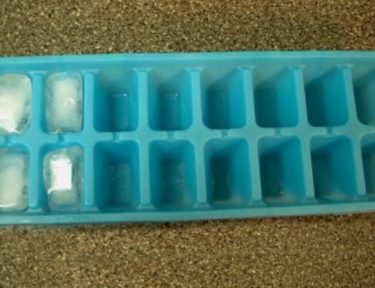Want to Live Longer? Then You Need to Start Eating This Food More Often.
Smile as you sing it: “Beans, beans, good for your heart, the more you eat them, the more you __!” People avoid eating their beans because of their gas content, but if you’re doing that, you should reconsider.
Why? Legumes are full of nutrients and they can also help you live longer. Besides being physically active and having community and social ties, we know that diet plays a role in healthy living. A look at longevity by region reveals one thing they all have in common: consumption of legumes.
As part of the legume family, beans are readily available and can be served alone or in soups, stews, dips, fritters, salads, and more. Combined with eating plenty of fruits, vegetables, and whole grains, beans can help with keeping the body fueled and your organs in tiptop shape. So, how can they help you live longer?
-
Heart Health
Let’s think about that jingle mentioned above. Numerous studies support the fact that beans lower cholesterol, lower blood pressure, and feed the heart with nutrients. They help to decrease inflammation in the body and keep blood vessels elastic.
-
Protein Source
Looking for an alternative to meat? Beans and lentils are high in protein and are a wonderful substitute for animal protein. Sufficient protein intake builds muscle, helps metabolism, and lowers cancer risk and mortality rates.
Eat at least one cup a day to meet roughly 1/3 of your daily protein and fiber intake needs. If you hate beans and need to slowly introduce them, start out with three to four cups a week.
-
Fiber Beasts
Speaking of fiber, beans are packed with it, helping your gut to stay healthy. How? For one, your bowels will move more regularly. Secondly, the good bacteria in your intestines get fed by that fiber that beans bring to the table, which in turn is good news for your immune system.
-
Diabetes Battlers
Yummy beans and their legume cousins the lentils also aid in reducing insulin levels and can lower the risk of type 2 diabetes by 35% when eaten at least once a week.
-
Weight Loss
Because they’re rich in fiber, beans make you feel full for longer. The amino acids in them help you to metabolize calories faster, and since they contain little to no amounts of fat, you’re not adding any to your body. Try eating at least ½ cup cooked beans per day to shed pounds and belly fat.
You can’t really go wrong with any type of bean, since they’re packed with things like iron, magnesium, folate, B vitamins, protein, copper, and manganese. But if you’re wondering what some varieties have to offer in addition to their flavor, here’s a look:
- Soybeans – High in protein, calcium, up estrogen levels, especially during menopause. Contains antioxidants which fight cancer.
- Kidney beans – Omega-3 fats can be found as can vitamins B1, B3, potassium, folate, and iron. Great for fighting diabetes.
- Black beans – High in iron, copper, folate, and protein, reduces spikes in blood sugar. Great in burritos and soups!
- Black-eyed peas – Get your iron and protein as well as vitamins B1, B3, and B6, magnesium and zinc.
- Chickpeas – Awesome source of protein, folate, and manganese and great at improving insulin and cholesterol levels.
- Pinto beans – Source of protein and fiber and wonderful for gut health, lowering cholesterol, and fighting high blood sugar.
Worried about gas? Soaking your beans overnight with a piece of seaweed like kombu can help reduce resulting flatulence. So can adding a teaspoon of baking soda to the soaking or cooking water. Both methods work to break down the sugars that cause gas.
Look out for canned beans that contain too much sodium, and be sure to rinse them to avoid spikes in sodium levels. Enjoy your beans whether you prepare them dried or canned, and don’t forget you can freeze them too. Bon appétit!
Sources:




